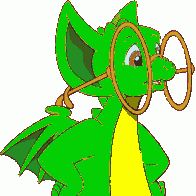Three Fundamental Emotions
http://www.mariannepowers.com/blog/2006/03/two-emotions.html
What are the fundamental emotions?
Love and Fear seem asymmetrical because they are not opposites. However, in order to classify them, we must look at their functionalities, polarities, and thus derive their categorization.
(I'll restrict myself to the most contextually sound definition of each.)
Love is a devotion to the other party in the relationship, often expressed in honest concern as well as mushy love notes. It is the emotional equivalent of two particles drawn together because of gravity or magnetism. Hate would be the opposite, the emotional equivalent of particles repelling each other. Keep in mind that relationship-type emotions can be mismatched, such as "I love my car" (when the car can't love him back) or "I hate Bush" (when Bush knows him only as a citizen of America) or "I know my girlfriend loves me" (when she thinks of him as a good boyfriend until Mr Right comes into her life).
Fear and Hope are the polar opposites regarding the future, both immediate and long-term, and even the past if the outcome is not yet known. (Think lottery results in the next morning's paper.) They are expectations, imperative-type emotions in the future tense. Their polarity is based on which outcome is desired. If met, there is satisfaction. (Which seems to explain why some people live in fear; when their expectation is justified, they don't regret the time they spent fearing.)
There are three types of emotions, relationships, imperatives, and identities. We have seen two so far.
Identity-type emotions involve value judgements, identifications, labels. Blogs are fun. My childhood was idyllic. If the moon crashed into the Earth, the result would be disastrous. Jenny is an idiot. ABC's Lost is enjoyable. Jesus has risen. This soup is icky. They can carry any person or tense, and are most easily stated using conjugated forms of the verb "to be." The highest positive identity-type emotion is a passionate positive identification of someone or something as good, great, or ideal. I might call this "faith," believing good things about someone or something. Humanists have faith in humanity. Christians have faith in Christ. Nihilists have faith in nothing except "nothing".
So the three fundamental positive emotions are Faith, Hope, and Love.
In the ESV translation:
http://www.gnpcb.org/esv/search/?q=1+cor+13
In the King James, with study tools:
http://www.blueletterbible.org/kjv/1Cr/1Cr013.html
"pistis, elpis, agape." The "C" button gets a concordance with word-study tools.
pistis: http://www.blueletterbible.org/tmp_dir/words/4/1142818717-918.html
Identity-type emotions are properly the emotional equivalents of logical definitions, or of physical things' existence. A thing doesn't "exist" emotionally without an identity. People who are confused on their own identity feel as though they are insubstantial, as though they don't really exist. A solid identity allows them to feel their existence.
Many people confuse "identity" with "role", which is a term that relates specifically to the two sides of a relationship-type emotion: "Father and daughter, slave and master, husband and wife, nephew and aunt." These are not identities in themselves, though people may assign identity emotions to anyone who plays these roles, because of identities built up through life experiences, entertainment, or other forms of culture transmission. I identify the role "father" first with my own father, with his personality characteristics; second, with the Ideal Sitcom Father, Mike Brady, Father Knows Best, Timmy's Dad, Andy Griffith, Cliff Huxtable.


1 Comments:
Insightful.
I think I'll add Ms. Powers' book to my need-to-read list.
By Anonymous, at 3:45 PM
Anonymous, at 3:45 PM
Post a Comment
<< Home